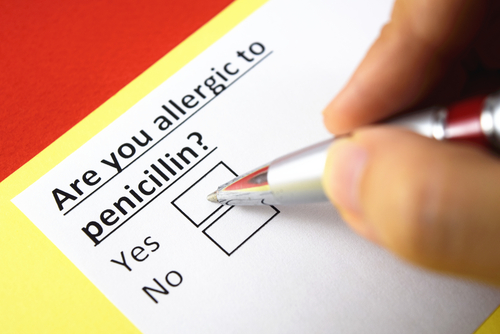
In an alarming development for public health, the United States is grappling with a syphilis epidemic of proportions not seen in 70 years. The sexually transmitted disease has seen a staggering increase of over 2,000 percent since 2002, with cases rising from 6,862 to an astounding 203,500 in 2022. This resurgence of a once well-controlled disease poses a significant threat to the nation’s health infrastructure.
The crisis has been exacerbated by a shortage of penicillin, the first-line treatment for syphilis. The scarcity of this vital antibiotic has become so severe that health agencies are now advising medical providers to ration the drug, prioritizing pregnant patients due to the risk of congenital syphilis, which can be fatal or cause severe deformities in newborns. This rationing decision underscores the gravity of the situation and the need for immediate action to address both the disease surge and the drug supply issue.
As syphilis cases soar ‘out of control,’ doctors are urged to ration penicillin: ‘There is insufficient supply’ https://t.co/Wtu9sq6Pdy pic.twitter.com/5uOjDKJhs6
— New York Post (@nypost) February 8, 2024
The shortage of penicillin is part of a broader drug scarcity affecting America. A spike in respiratory illnesses among children, attributed to weakened immune systems post-lockdown, has led to increased demand for antibiotics like amoxicillin, further straining supplies. The rationing of penicillin could leave thousands without essential treatment for various bacterial infections, highlighting the interconnectedness of public health challenges.
The Centers for Disease Control and Prevention (CDC) has reported that the increase in syphilis cases can be partly attributed to inadequate treatment during pregnancy. The ripple effects of supply chain disruptions throughout 2022 continue to impact medical supplies, including life-saving drugs for cancer, epilepsy, and diabetes. These shortages are a stark reminder of the fragility of our healthcare system and the urgent need for robust solutions.
Ivermectin is often recognized – 2nd to penicillin – for having the greatest impact on human health. Its discovery even won the Nobel Prize.
pic.twitter.com/2raAohlDsI— Mississippi Sambo (@MS_Sambo_) February 8, 2024
The pandemic has also played a role in exacerbating the current crisis, causing historic declines in the manufacturing industry and increasing demand for medications and medical equipment. As a result, the healthcare sector is under unprecedented pressure, struggling to meet the needs of patients across a spectrum of conditions.
In response to the syphilis epidemic, the CDC has urged doctors to be vigilant and conduct routine testing for the disease, especially in pregnant women. However, the shortage of penicillin complicates these efforts. Pfizer, the manufacturer of Bicillin, a long-acting injectable form of penicillin, has cited a 70 percent increase in demand for the shots due to the rise in syphilis infection rates.
The complexity of producing penicillin, given the prevalence of allergies to the drug, adds another layer of difficulty. Specialized facilities are required to manufacture it, limiting production to pharmaceutical giants like Pfizer. This has resulted in clinics devising strategies to cope with the limited supply, with each shot costing hundreds of dollars and requiring cold storage with a shelf life of only 48 months.
The STD epidemic is described as “out of control” by the National Coalition of STD Directors, with Tennessee experiencing an 86 percent increase in syphilis infection rates between 2017 and 2021. Without adequate treatment, syphilis can progress to affect the brain and spinal cord, leading to serious complications such as stroke and meningitis. The dramatic rise in congenital syphilis cases, a ten-fold increase from a decade earlier, is a public health emergency that demands immediate attention and a coordinated response.













